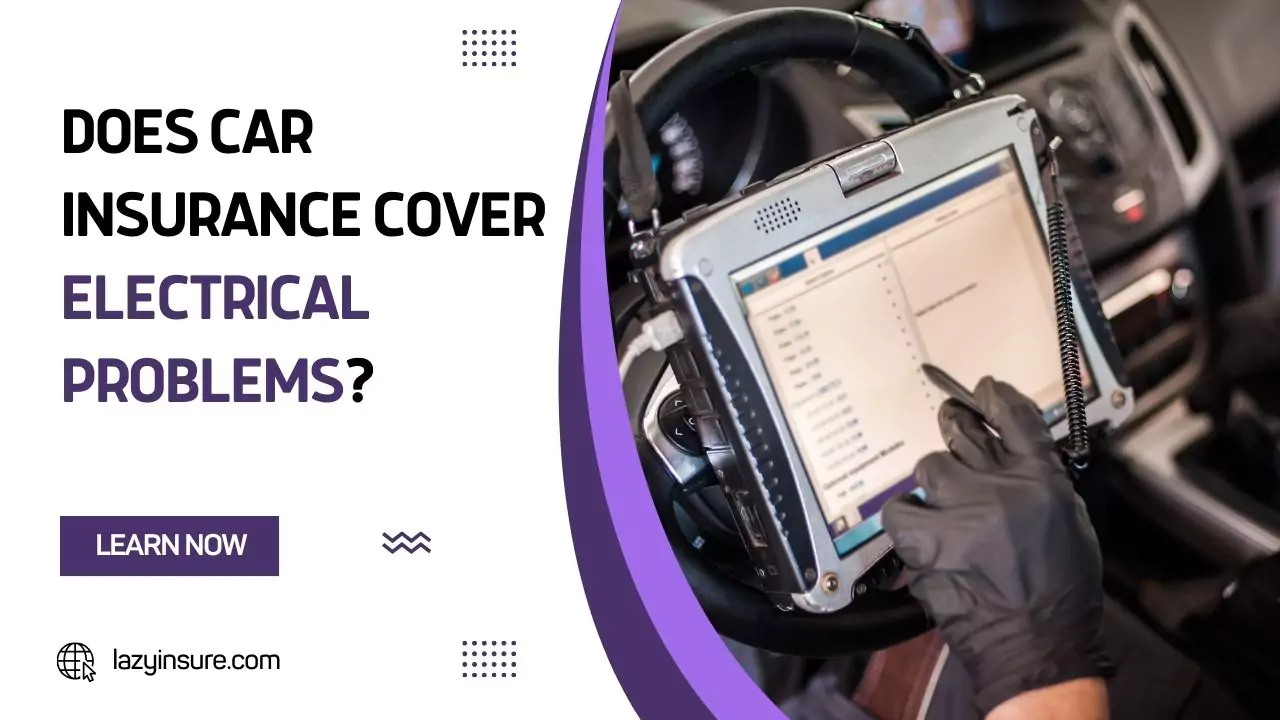Electrical problems can cause various issues in your car, from malfunctioning radios and windows to electrical fires and breakdowns. But does car insurance cover electrical problems?
The answer is not simple. It depends on what caused the electrical problem, what type of coverage you have, and what exclusions apply to your policy.
What Does Car Insurance Cover for Electrical Problems?
Car insurance typically covers electrical problems that are caused by covered perils. Covered perils are events that are beyond your control, such as accidents, vandalism, theft, fire, flood, hail, or animal damage. For example, If a crash or tree branch damages your car’s electrical system, your auto insurance will pay the repairs, less your deductible.
The type of coverage that applies to electrical problems caused by covered perils depends on the specific situation. For example:
- If your car’s electrical system is damaged by a collision with another vehicle or object, your collision coverage will pay for the repairs.
- If your car’s electrical system is damaged by vandalism, theft, fire, flood, hail, or animal damage, your comprehensive coverage will pay for the repairs.
- If your car’s electrical system is damaged by an accident that involves another driver who is at fault and uninsured or underinsured, your uninsured/underinsured motorist property damage coverage will pay for the repairs.
What Does Car Insurance Not Cover for Electrical Problems?
Electrical issues caused by wear and tear or mechanical failure are usually not covered by car insurance. Wear and tear is the steady degradation of your car’s components and systems due to regular usage and aging. Mechanical breakdowns are abrupt and unexpected failures of your car’s components and systems due to flaws or malfunctions. If your vehicle’s battery dies, the alternator fails, starting motor stops operating, or the wiring shorts out due to wear and tear or mechanical problems, your auto insurance won’t cover the repairs.
Electrical issues that are part of automobile maintenance are not covered by car insurance. Maintaining your automobile and avoiding damage from carelessness is your responsibility.
There are exceptions. Some automobile insurance providers offer optional mechanical breakdown insurance (MBI) to cover specific mechanical and electrical components failure if your car breaks down unexpectedly. Depending on the business, MBI may encompass air conditioning, cooling systems, electrical systems (including the car’s computer), engine, exhaust, fuel systems, steering components, and transmission. MBI has a deductible and a claim limit.
If your car’s electrical issue is covered by a recall or warranty, another exemption applies. A warranty guarantees that the manufacturer or dealer will repair or replace faulty components or systems within a particular time or mileage. A recall is a warning from the manufacturer or government that specific components or systems have a safety flaw and must be repaired or replaced free of charge. Contact the manufacturer or dealer to remedy your car’s electrical issue if it’s under warranty or recall.
How to Determine if Your Car Insurance Covers Electrical Problems
To find out whether your auto insurance covers electrical issues, read your policy. Look for insurance specifics, exclusions, deductibles, restrictions, and conditions. Check your policy’s declarations page for coverage kinds and amounts.
Your insurance provider can answer any policy or coverage inquiries. They can discuss your coverage and electrical issue choices. They may also assist with claims.
Conclusion
Only some forms of car insurance cover electrical issues. Unless you have MBI, it does not cover electrical issues caused by wear and tear or mechanical failures. It does not cover warranty or recall-covered electrical issues. Review your policy, contact your insurer, and make a claim to find out whether your auto insurance covers electrical issues.





